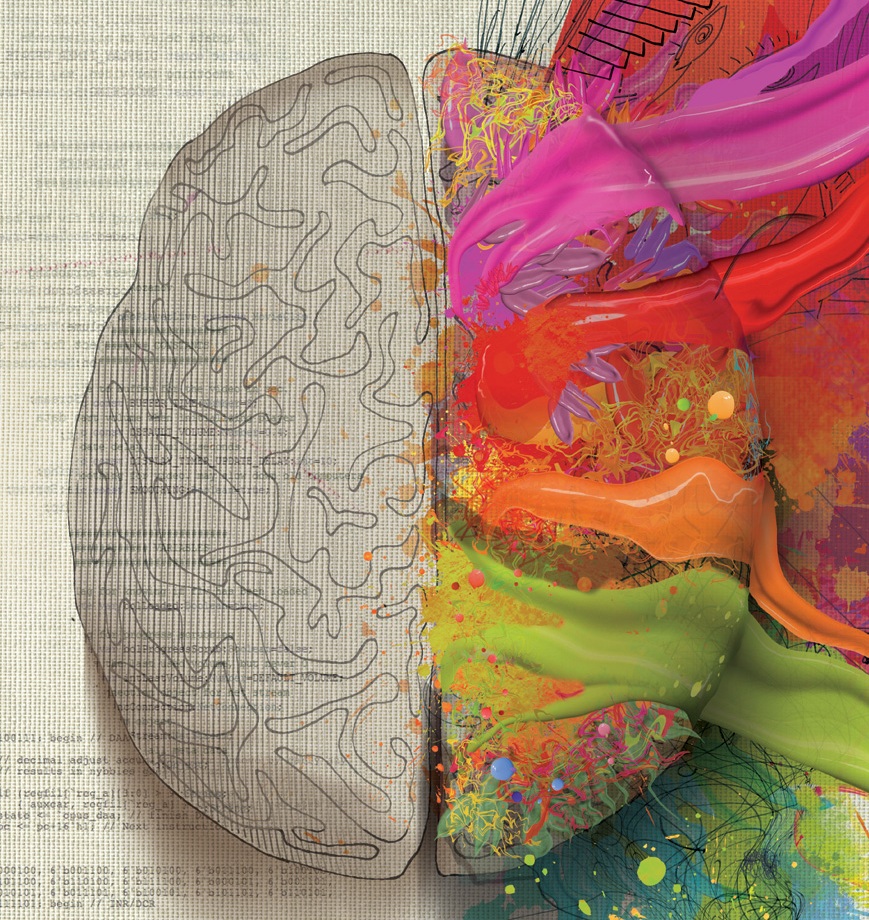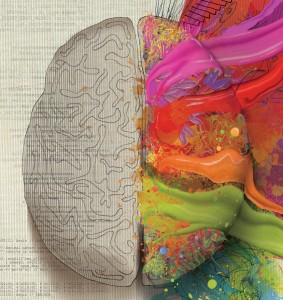The Creative Breakthrough: Lessers Give Up, Masters are Stronger

I’m currently working my way through the excellent book Mastery by Robert Greene. Actually, I’m listening to it as an audio book through Audible.com. I’ve never been a fan of audio books, but I’ve found that it’s great to listen every day for about 30 minutes or so on my morning walk. It may take a while to get through it, but it’s a great way to multi-task. As I was walking this morning I came across a chapter that resonated and I had to share. I’ve always been fascinated by creativity, and being an “idea person” (an Owl and Theoretician to the core) I know the challenges of bringing an idea to life and seeing it through the initial exciting phases of creative birth to reality. I think the following advice is exceptional and translates to traditional creative work (art, music, etc.) to software development, and entrepreneurship.
“The Creative Breakthrough—Tension and Insight In the creative lives of almost all Masters, we hear of the following pattern: They begin a project with an initial intuition and an excitement about its potential success. Their project is deeply connected to something personal and primal, and seems very much alive to them. As their initial nervous excitement inspires them in certain directions, they begin to give their concept shape, narrowing down its possibilities, and channeling their energies into ideas that grow more and more distinct. They enter a phase of heightened focus. But Masters inevitably possess another quality that complicates the work process: They are not easily satisfied by what they are doing. While able to feel excitement, they also feel doubt about the worthiness of their work. They have high internal standards. As they progress, they begin to detect flaws and difficulties in their original idea that they had not foreseen. As the process begins to become more conscious and less intuitive, that idea once so alive in them starts to seem somewhat dead or stale. This is a difficult feeling to endure and so they work even harder, trying to force a solution. The harder they try, the more inner tension and frustration they create. The sense of staleness grows. In the beginning, their mind teemed with rich associations; now it seems condemned to a narrow track of thought that does not spark the same connections. At certain points in this process, lesser types would simply give up or settle for what they have—a mediocre and half-realized project. But Masters are stronger. They have been through this before, and on an unconscious level they understand that they must plow forward, and that the frustration, or the feeling of being blocked, has a purpose. At a particular high point of tension, they let go for a moment. This could be as simple as stopping work and going to sleep; or it could mean deciding to take a break, or to temporarily work on something else. What almost inevitably happens in such moments is that the solution, the perfect idea for completing the work comes to them. After ten long years of incessant thinking on the problem of general relativity, Albert Einstein decided one evening to simply give up. He had had enough. It was beyond him. He went to bed early, and when he awoke the solution suddenly came to him. The composer Richard Wagner had worked so hard on his opera Das Rheingold that he became completely blocked. Beyond frustration, he took a long walk in the woods, lay down, and fell asleep. In a sort of half dream, he felt himself sinking in swiftly flowing water. The rushing sounds formed into musical chords. He awoke, terrified by a feeling of drowning. He hurried home and noted down the chords of his dream, which seemed to perfectly conjure up the sound of rushing water. These chords became the prelude of the opera, a leitmotif that runs throughout it, and one of the most astonishing pieces he had ever written. These stories are so common as to indicate something essential about the brain and how it reaches certain peaks of creativity. We can explain this pattern in the following way: If we remained as excited as we were in the beginning of our project, maintaining that intuitive feel that sparked it all, we would never be able to take the necessary distance to look at our work objectively and improve upon it. Losing that initial verve causes us to work and rework the idea. It forces us to not settle too early on an easy solution. The mounting frustration and tightness that comes from single-minded devotion to one problem or idea will naturally lead to a breaking point. We realize we are getting nowhere. Such moments are signals from the brain to let go, for however long a period necessary, and most creative people consciously or unconsciously accept this. When we let go, we are not aware that below the surface of consciousness the ideas and the associations we had built up continue to bubble and incubate. With the feeling of tightness gone, the brain can momentarily return to that initial feeling of excitement and aliveness, which by now has been greatly enhanced by all of our hard work. The brain can now find the proper synthesis to the work, the one that was eluding us because we had become too tight in our approach. Perhaps the idea for the watery sounds in Das Rheingold had stirred before in different forms in Wagner’s brain as he strained to find the right opening. Only by giving up the chase and falling asleep in the woods was he able to access his unconscious mind, and allow an idea that had been brewing there to surface by way of a dream. The key is to be aware of this process and to encourage yourself to go as far as you can with your doubts, your reworkings, and your strained efforts, knowing the value and purpose of the frustration and creative blocks you are facing. Think of yourself as your own Zen Master. Such Masters would often beat their pupils and deliberately lead them to points of maximum doubt and inner tension, knowing such moments often precede enlightenment. Among the thousands of stories of great insights and discoveries, perhaps the strangest one of all is that of Evariste Galois, a promising student of mathematics in France who in his teens revealed exceptional brilliance in algebra. In 1831, at the age of twenty, he became embroiled in a quarrel over a woman, which resulted in his being challenged to a duel. The night before the duel, certain he was going to die, Galois sat down and tried to summarize all of the ideas on algebraic equations that had been troubling him for several years. Suddenly, the ideas flowed, and even new ones came to him. He wrote all night at a feverish pitch. The next day, as he had foreseen, he died in the duel, but in the ensuing years his notes were read and published, leading to a complete revolution in higher algebra. Some of his scribbled notes indicated directions in mathematics that were so far ahead of his time, it is hard to fathom where they came from. This is a somewhat extreme example, but the story reveals something elemental about the need for tension. The feeling that we have endless time to complete our work has an insidious and debilitating effect on our minds. Our attention and thoughts become diffused. Our lack of intensity makes it hard for the brain to jolt into a higher gear. The connections do not occur. For this purpose you must always try to work with deadlines, whether real or manufactured. Faced with the slenderest amount of time to reach the end, the mind rises to the level you require. Ideas crowd upon one another. You don’t have the luxury of feeling frustrated. Every day represents an intense challenge, and every morning you wake up with original ideas and associations to push you along. If you don’t have such deadlines, manufacture them for yourself. The inventor Thomas Edison understood how much better he worked under pressure. He would deliberately talk to the press about an idea before it was ready. This would create some publicity and excitement in the public as to the possibilities of the proposed invention. If he dropped the ball or let too much time pass, his reputation would suffer, and so his mind would spark into high gear and he would make it happen. In such cases your mind is like the army that is now backed up against the sea or a mountain and cannot retreat. Sensing the proximity of death, it will fight harder than ever.”

One Response
Not only must one have deadlines but they must be not so distant that allows for a feeling that there isn’t a sense of urgency. However, I agree that we do our best work when under pressure from deadlines – ideas seem to flow quicker when finishing up an essay the night that it’s due!